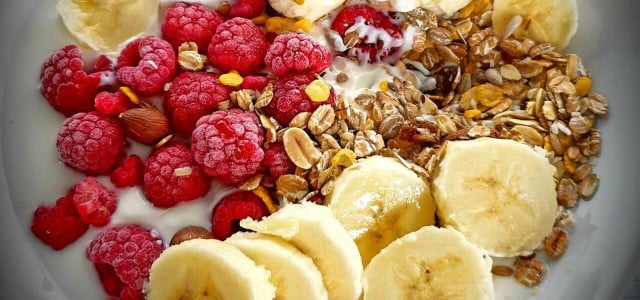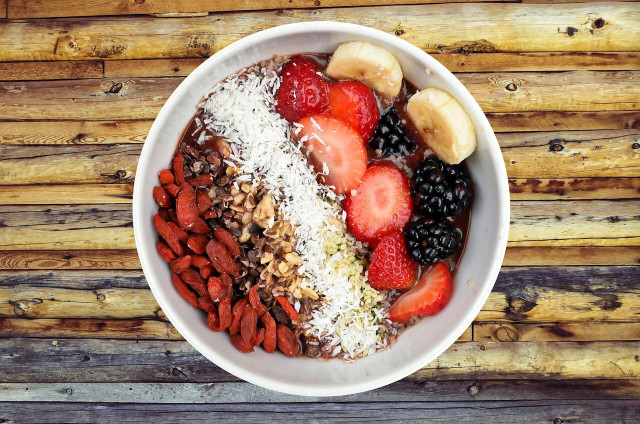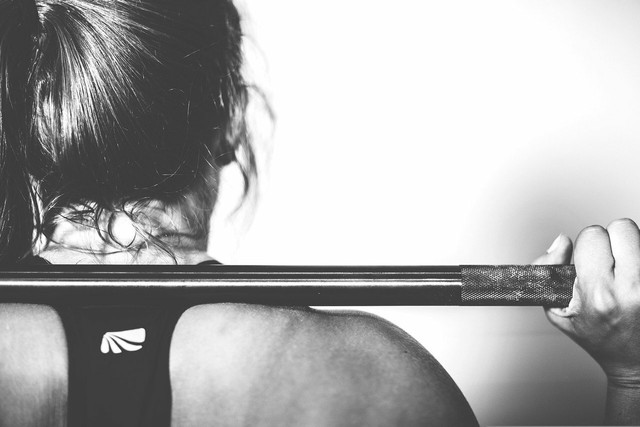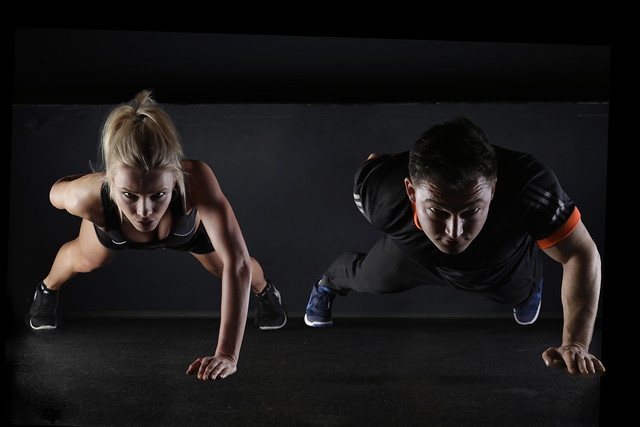
Not sure whether you should eat before or after exercise? We compare the advantages and disadvantages and explain how to do it right.
Exercising is good for your health for a number of reasons. Regular exercise is especially good for the cardiovascular system. According to the AOK, statistically speaking, eight minutes of exercise a day is enough to reduce the risk of cardiovascular disease in the long term. In particular, sports that require a lot of endurance have a positive effect on our cardiovascular health: they promote blood circulation so that the heart receives more oxygen. The increased blood flow also normalizes blood pressure and reduces the risk of developing blood clots.
But not only that: If you do a lot of sport, you are more relaxed, strengthen your mental health and, according to the AOK, you can even prevent depressive moods. In order for your body to be able to master endurance sports, it needs a lot of energy. As an athlete, you should therefore eat regularly. Many people ask themselves whether they should eat something before or after exercising. To make your decision easier, here are the pros and cons of both options.
Eat before or after exercise: No large meals before exercise

(Photo: CC0 / Pixabay / 27707)
The health experts at the AOK advise against eating too much before exercising. Because the body would first have to digest the lavish meal, which in turn requires a lot of energy. This energy is then missing in the sports unit. Therefore, it makes sense if you allow at least two to three hours between a meal and training. When exercising in the morning hours, you can also train on an empty stomach, as this stimulates fat burning.
Studies also support this thesis: If you want to be successful in sports, you should not eat anything before exercising. Researchers came to this conclusion in a 2017 study. They examined the effect of eating before exercise. The conclusion: The subjects who exercised on an empty stomach had higher levels of enzymes that are important for the metabolism. Accordingly, they were better able to use the existing fatty tissue as an energy reserve. Because they burned more fat tissue, these people were more likely to lose weight than those who ate before exercising.
But: As with other things, the dose makes the poison. Logically, if you’re feeling famished, you’re not going to perform at your best or, if your body can’t do without breakfast, you’ll even keel over. This is especially true with strength training, where you’re likely to perform less well on an empty stomach. So it’s less about whether you eat before exercise and more about what and how much you eat. If you need a little boost of energy beforehand, you can choose foods that are not heavy on the stomach. They will not harm you before training. Fatty foods, on the other hand, are harder to digest, so avoid eating fatty foods before you exercise. “Good sources of nutrients” with short-chain carbohydrates that you can eat in moderation before training include:
- Bananas, strawberries or dried fruit
- granola bar
- Rice or corn cakes
- oatmeal
- potatoes, rice or pasta
- nuts
Tip: In order to increase your athletic performance, experts recommend eating easily digestible food before training and occasionally training on an empty stomach. This way your body can burn fat optimally and at the same time you have enough energy to master your training well. You should not eat anything during the training itself, but drink enough fluids (water or coconut water) so that you do not become dehydrated. If pure water is too boring for you, you can also use isotonic drinks that supply your body with electrolytes.
After sport: replenish your energy balance

(Photo: CC0 / Pixabay / Ichigo121212)
After a sweaty training session, your body needs new energy to recover. That’s why it makes more sense to eat after exercise than before exercise. However, make sure you eat a healthy and varied diet. You should prefer easily digestible meals with lots of protein and fiber. The German Society for Nutrition recommends recreational athletes, for example, a daily protein intake of around 0.8 to 1.2 grams per kilogram of body weight. If you are actively involved in competitive sports and train for more than five hours a week, the recommendation is that you can consume up to 1.6 grams of protein per kilogram of body weight.
However, it can be worthwhile if you only eat something for an hour or two after exercising. This is when the so-called afterburn effect occurs, in which the muscles first tap into the fat tissue to generate energy. Especially if you want to lose weight with sport, it makes sense to benefit from the afterburn effect. But: You shouldn’t wait longer than two hours either, otherwise your muscles could be undersupplied and you risk deficiency symptoms in the long run.
After exercising, it is best to replenish your reserves with foods containing protein and carbohydrates. You can eat (almost) anything that is rich in carbohydrates or protein, for example:
- Fruits such as apples, bananas and berries
- Side dishes like potatoes and pasta
- Vegetables like tomatoes, spinach, peas and beans
- eggs and dairy products
Before or after exercise: What you should definitely not eat
After an intense workout, you naturally feel hungry. However, you should never eat some unhealthy foods before or after exercising:
- We advise against artificial supplements such as fat burners and other dietary supplements. These are full of artificial additives and bring no health benefits. For example, if you want to consume protein powder, you should definitely pay attention to harmless ingredients and ideally ask your trainer or nutritionist for advice on whether the additional intake is necessary.
- Fast food and sweets are a no-go after exercise. They bring you fast carbohydrates, but cause your blood sugar levels to rise. As a result, you have even more cravings on the one hand, and on the other hand the pounds you have trained off quickly fall back on your hips.
- Of course, alcohol before and after exercise is not healthy either. Before exercise, it can cloud your judgment and affect your performance. After exercise, the calorie density is too high. In addition, post-exercise alcohol makes you more likely to become dehydrated and inhibits muscle growth. All good reasons to stay alcohol-free before and after your workout.
Eat before or after exercise? This is our conclusion

(Photo: CC0 / Pixabay / 5132824)
When asked whether you should eat before or after exercising, there is no clear “yes” or no. Both variants can make sense as part of the right diet and regeneration in sports, depending on which sport you do and whether you want to lose weight through exercise.
When you do strength training, you need protein and carbohydrates before and after exercise. On the other hand, if you do endurance sports and want to lose weight, you should stay sober before exercising or just eat a little something. After training, you will then benefit from the afterburn effect. Regardless of the sport, you should drink plenty of fluids before, during and after your workout to keep your circulation stable.
Read more on Techzle.com:
- Vegan diet and sport: is that possible?
- Is sport on the weekend enough? A study provides answers for “Weekend Warriors”
- Finding sports motivation: This can help you